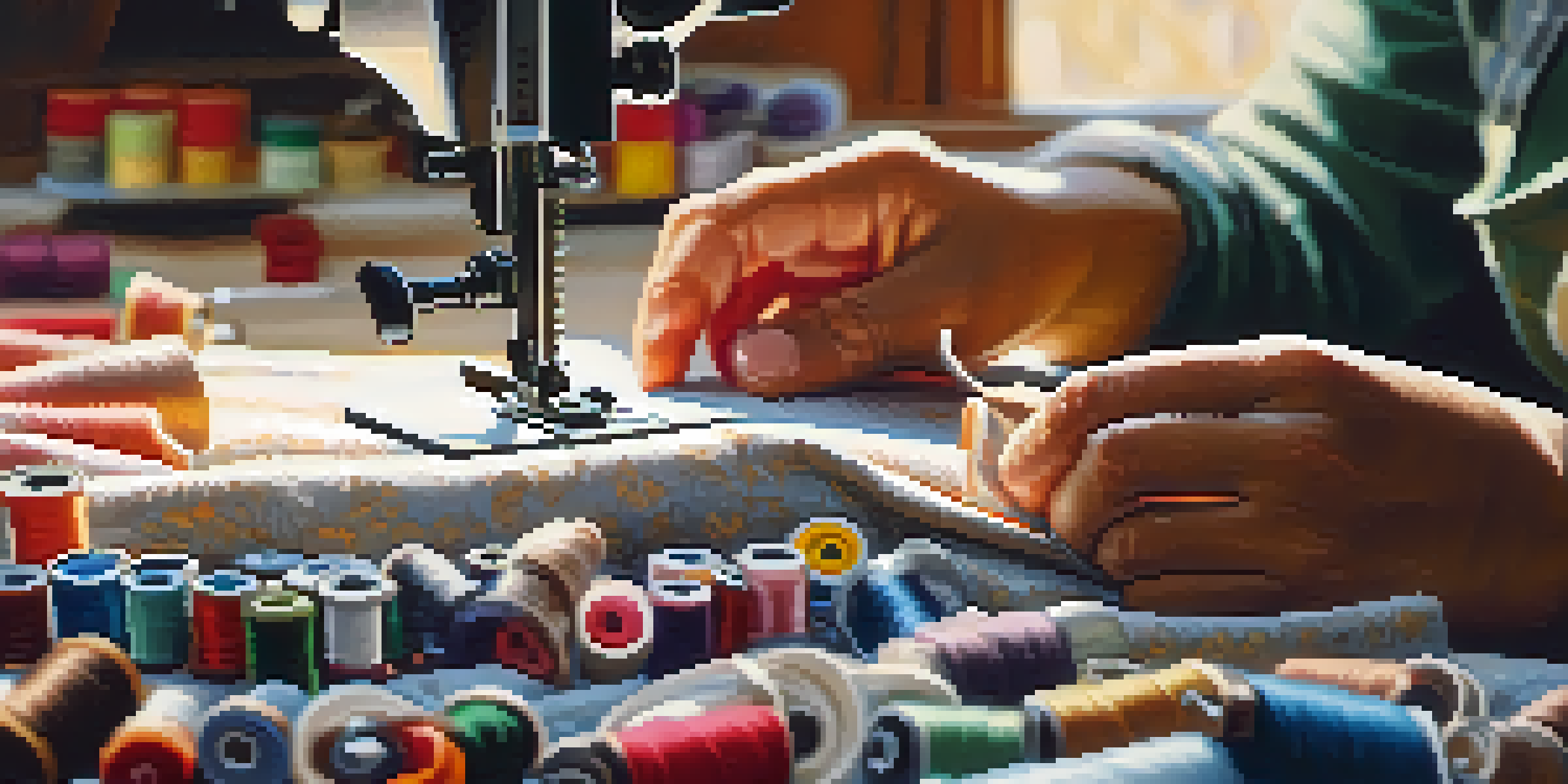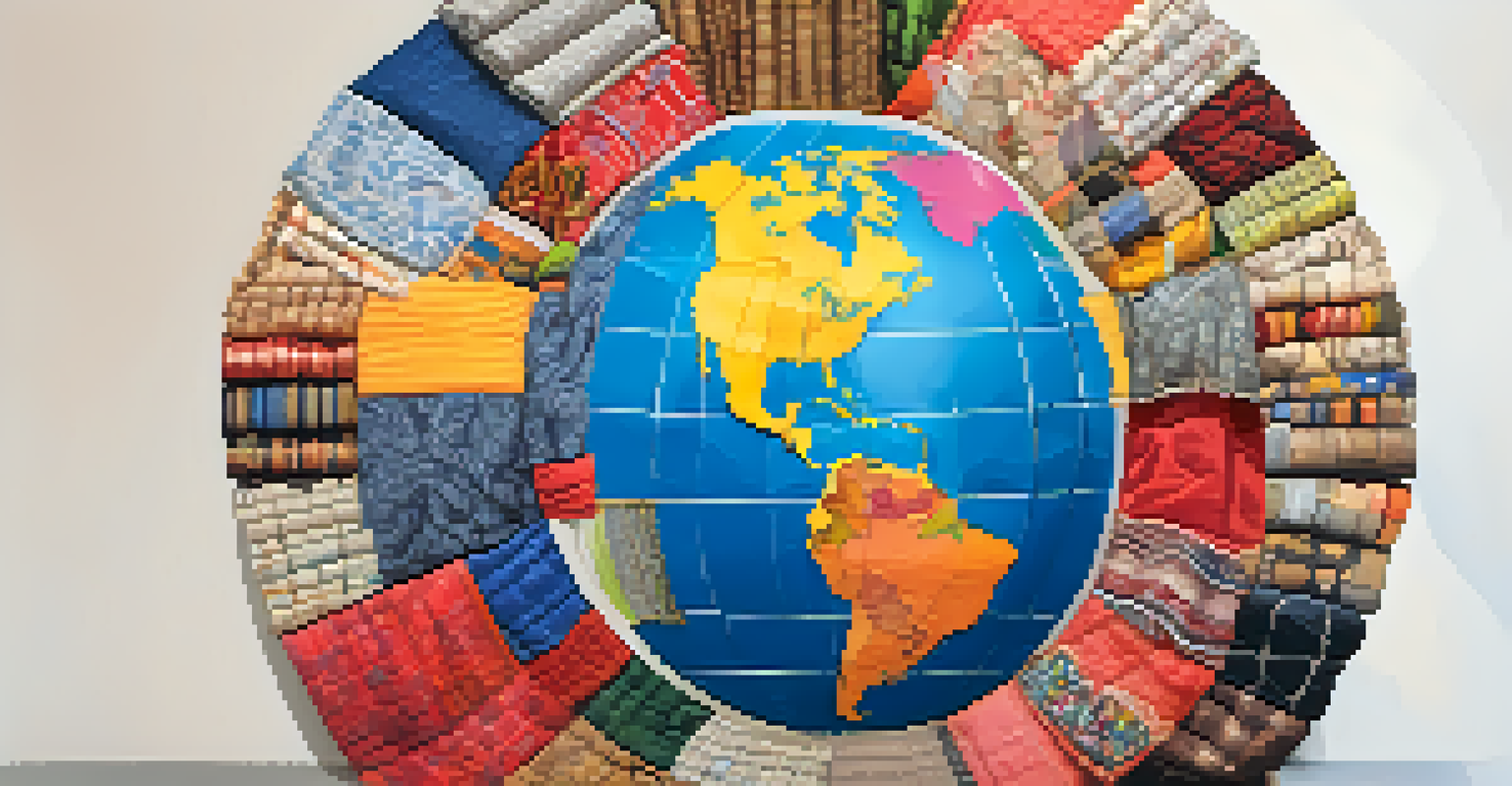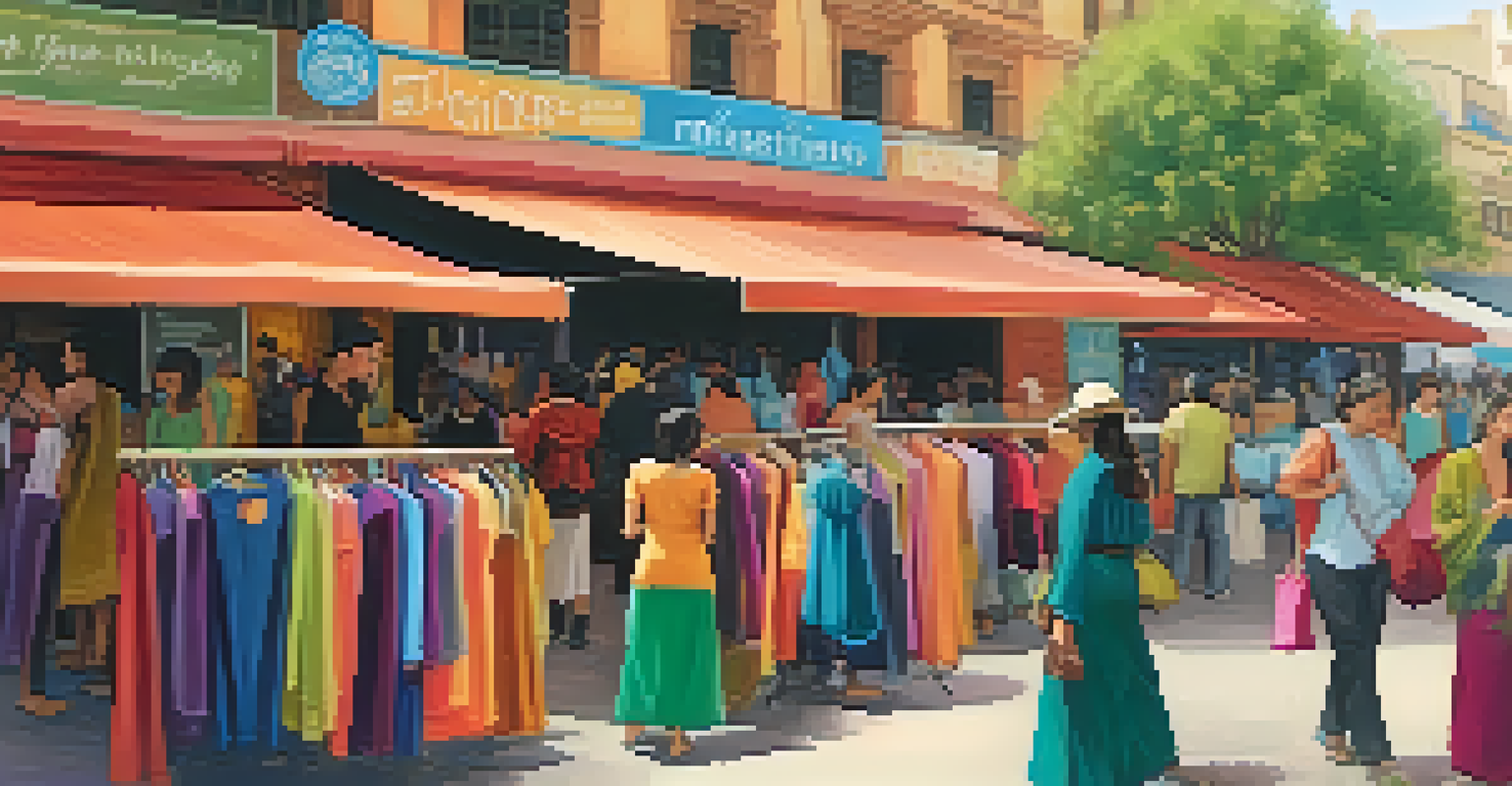Labor Rights and Global Supply Chains in the Fashion Industry

Understanding Labor Rights in the Fashion Industry
Labor rights refer to the legal and human rights related to work. In the fashion industry, this encompasses fair wages, safe working conditions, and the right to unionize. These rights are crucial for protecting the dignity and well-being of workers who create the clothing we wear.
The fashion industry is a global business, but the human cost of that business is often hidden from view.
Despite these rights being recognized globally, many garment workers face exploitation. For instance, in countries like Bangladesh and Cambodia, workers often endure long hours for minimal pay, with little to no job security. This reality starkly contrasts with the industry's glamorous image, highlighting a significant ethical dilemma.
Understanding labor rights is the first step toward addressing these issues. It encourages consumers to think critically about the origins of their clothing and the lives of those who make them, fostering a more conscious approach to fashion consumption.
The Role of Global Supply Chains in Fashion
Global supply chains are the networks that connect various production stages across countries. In fashion, this can mean sourcing materials from one country, manufacturing in another, and selling in a third. While this model allows for cost efficiency, it often leads to a lack of accountability for labor practices.

For example, a brand might source cotton from India, have it spun into fabric in China, and then stitched into garments in Vietnam. Each step adds layers of complexity, making it difficult to ensure that labor rights are upheld at every point. This disconnection often leads to exploitation, as brands prioritize profits over ethical considerations.
Labor Rights Are Crucial for Workers
Fair wages, safe conditions, and the right to unionize are essential for protecting the dignity of garment workers.
Recognizing the intricacies of these supply chains is essential for advocating for labor rights. It highlights the responsibility of brands to monitor their suppliers and ensure fair practices throughout the entire process.
Impact of Consumer Awareness on Labor Rights
Consumer awareness plays a pivotal role in shaping labor rights in the fashion industry. As shoppers become more informed about the conditions under which their clothes are made, they can drive demand for ethical practices. This shift can encourage brands to adopt more sustainable and fair labor policies.
Ethical fashion is not just a trend; it's a movement towards a more equitable industry that respects labor rights.
For instance, the rise of social media has amplified voices calling for transparency in fashion production. Campaigns that expose labor abuses have prompted brands to rethink their sourcing strategies and improve working conditions. When consumers choose to support ethical brands, they contribute to a larger movement for change.
Ultimately, informed consumers have the power to hold brands accountable. By making conscious purchasing decisions, they can foster an industry that respects and upholds labor rights, promoting a culture of ethical fashion.
The Ethical Fashion Movement and Its Influence
The ethical fashion movement advocates for sustainable practices and fair labor rights in the industry. It emphasizes the importance of transparency, encouraging brands to disclose their supply chain practices. This movement has gained traction in recent years, influencing both consumer behavior and corporate policies.
Many brands now market themselves as 'ethical' or 'sustainable,' which often includes commitments to fair wages and safe working environments. For example, companies like Everlane and People Tree have built their identities around transparency and ethical production. This shift is not just a trend; it's a response to growing consumer demand for accountability.
Consumer Awareness Drives Change
Informed consumers can influence brands to adopt ethical practices by demanding transparency and accountability in fashion.
The rise of ethical fashion highlights the potential for positive change within the industry. It serves as a reminder that consumers can influence brands to prioritize labor rights and create a more just fashion ecosystem.
Challenges Faced in Upholding Labor Rights
Despite advancements in labor rights awareness, challenges persist in the fashion industry. Many brands struggle to implement effective monitoring systems to ensure compliance with labor standards. The sheer size and complexity of global supply chains often make it difficult to trace practices back to the source.
Additionally, economic pressures can lead brands to cut corners, prioritizing profits over ethical considerations. This can result in workers being subjected to unsafe conditions, inadequate pay, and exploitation. As a result, upholding labor rights remains an ongoing battle that requires vigilance and commitment from all stakeholders.
Addressing these challenges necessitates collaboration between brands, consumers, and advocacy groups. By working together, they can create a more equitable system that prioritizes the rights and dignity of workers in the fashion industry.
The Role of Regulations and Policies
Regulations and policies play a crucial role in safeguarding labor rights within the fashion industry. Governments and organizations can implement laws that set minimum standards for wages, working conditions, and workers' rights. However, enforcement can be a significant challenge, especially in countries with lax labor regulations.
For instance, some countries have established labor laws that promote fair treatment, but enforcement is often weak. This can leave workers vulnerable to exploitation, as companies may circumvent regulations for profit. Stronger policies and enforcement mechanisms are essential to protect workers' rights effectively.
Collaboration is Key for Progress
Addressing challenges in labor rights requires cooperation between brands, consumers, and policymakers to create a fairer industry.
As consumers, advocating for stronger regulations can lead to meaningful change. Supporting policies that prioritize labor rights can encourage governments and brands to take the necessary steps toward creating a fairer fashion industry.
Future Outlook for Labor Rights in Fashion
The future of labor rights in the fashion industry hinges on continued awareness and advocacy. As consumers become increasingly conscious of their purchasing choices, brands may feel compelled to prioritize ethical practices. This growing movement offers hope for a more equitable future for garment workers worldwide.
Innovations in technology, such as blockchain, also hold promise for improving transparency in supply chains. By tracking products from source to sale, these technologies can help ensure accountability and uphold labor rights. This shift towards transparency is crucial for building consumer trust and promoting ethical practices.

Ultimately, the path forward requires collaboration among consumers, brands, and policymakers. By working together, they can create a fashion industry that respects labor rights and fosters a culture of responsibility and sustainability.